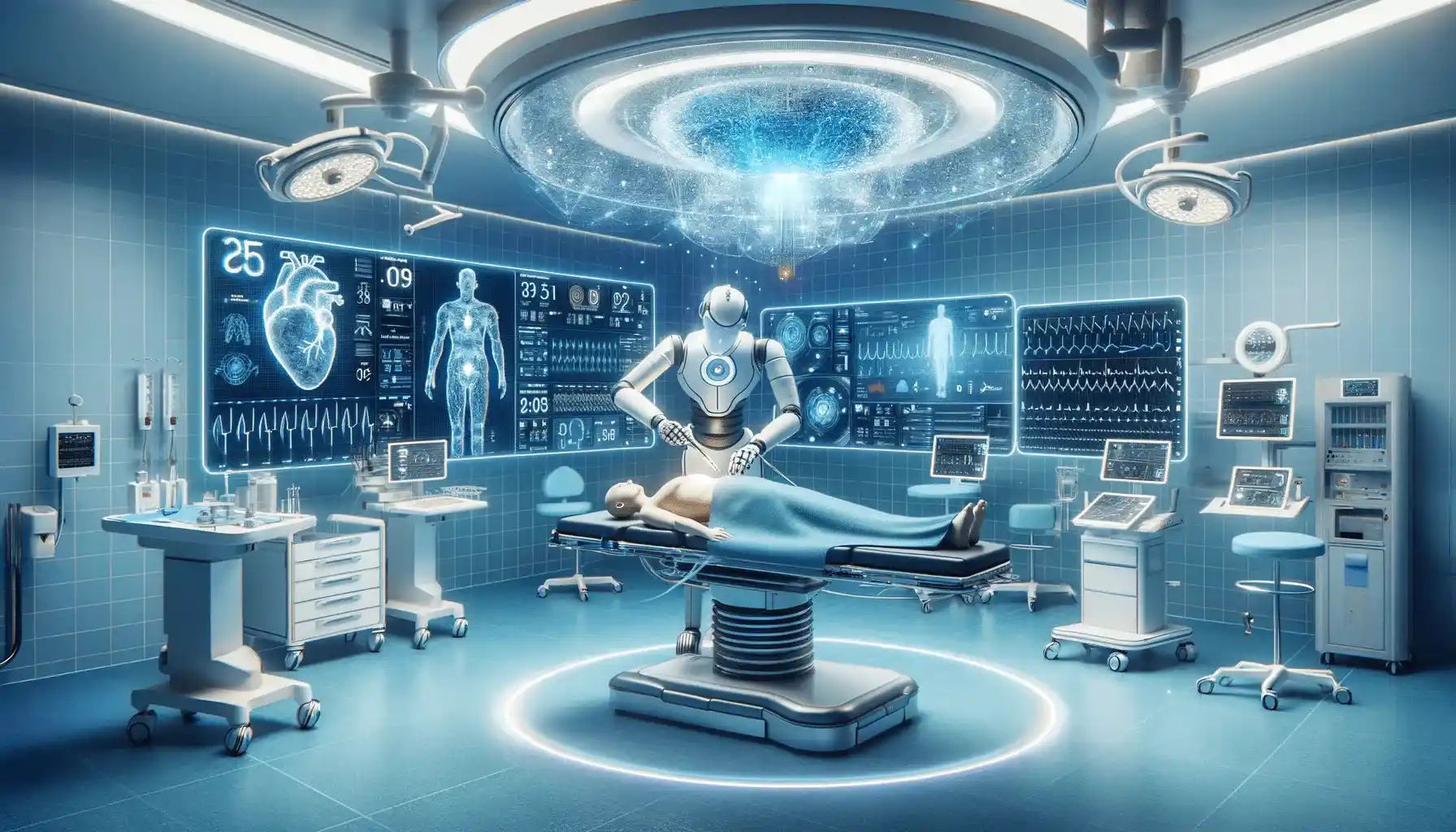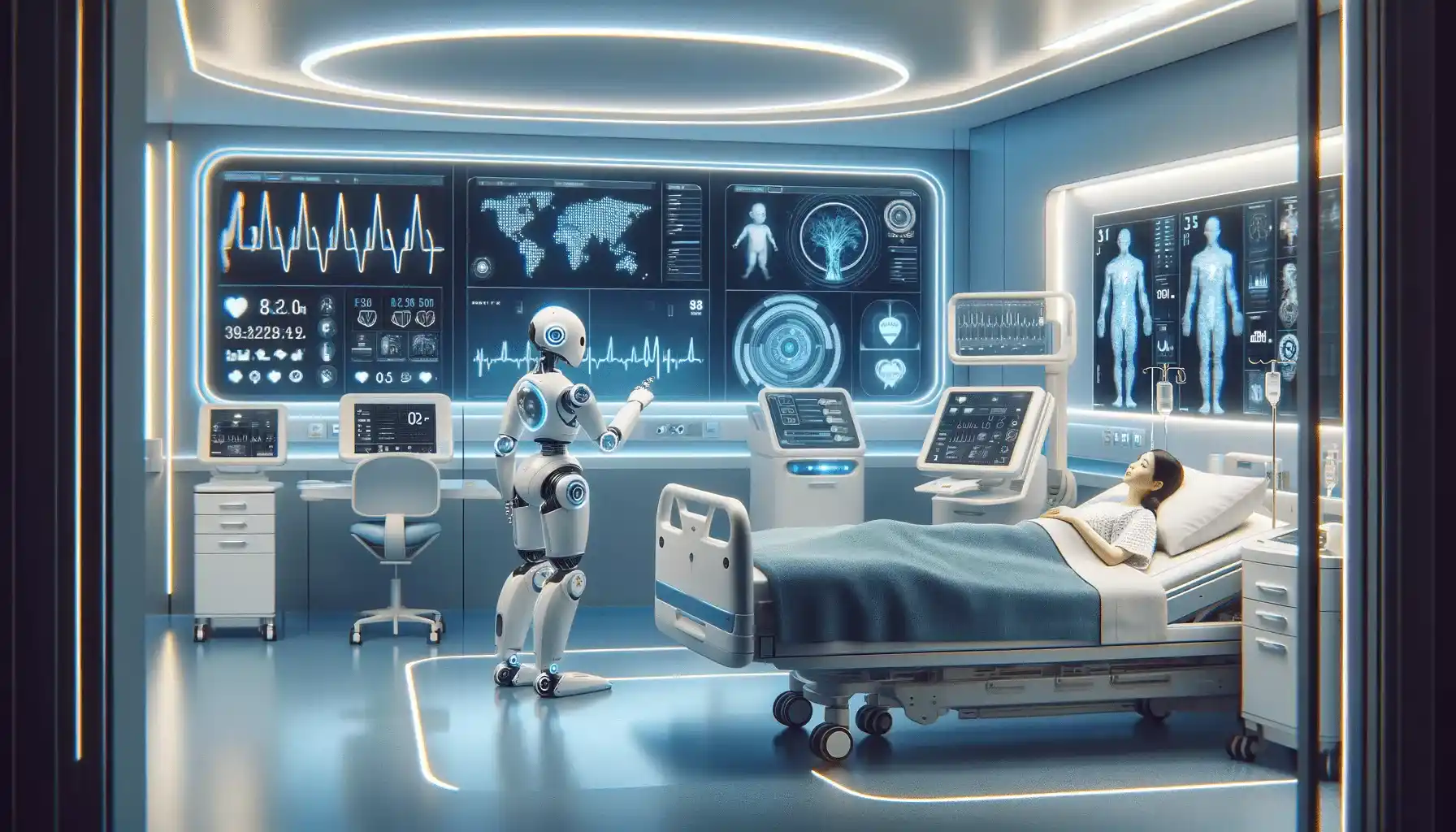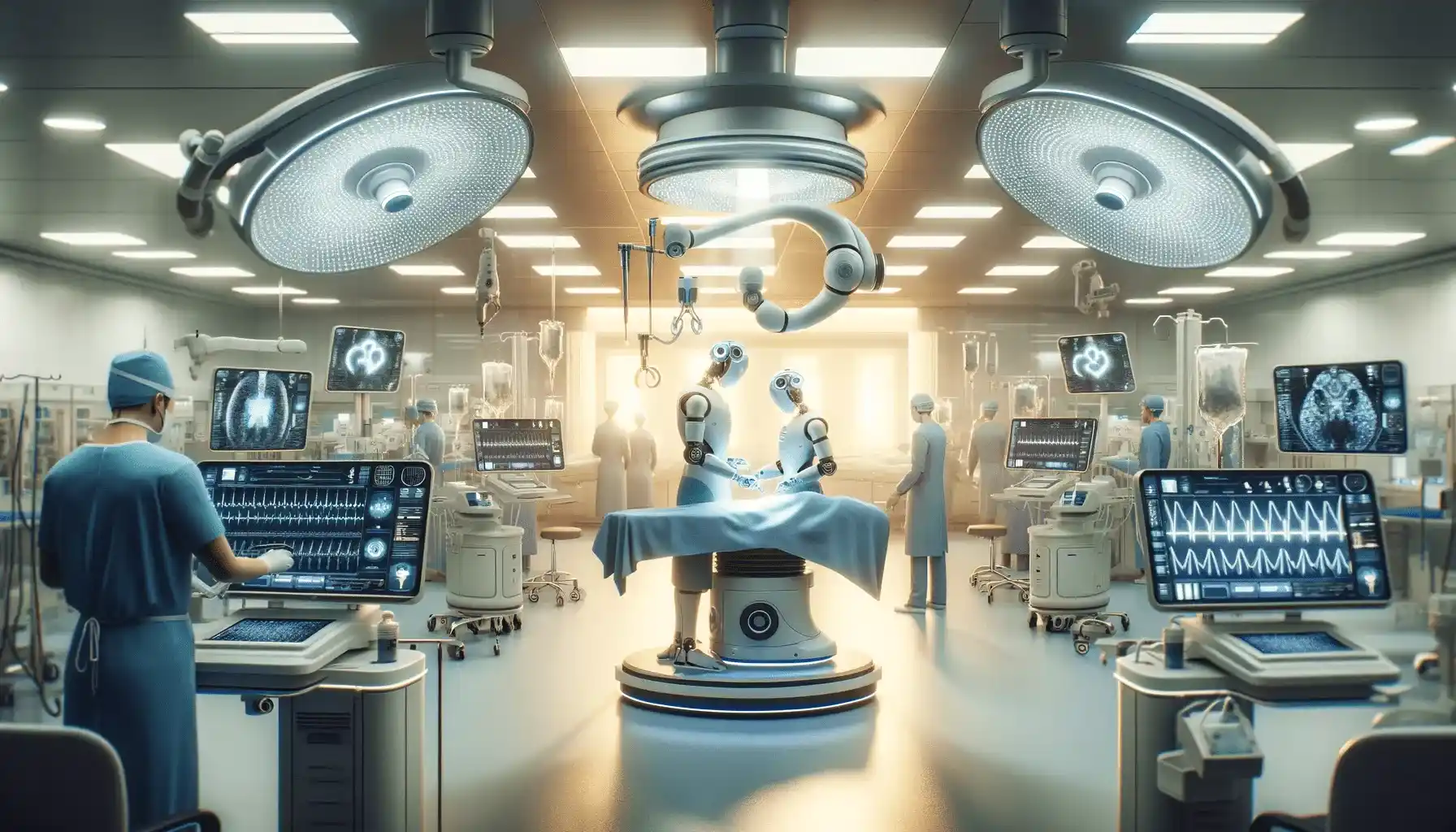Table of Contents
AI in healthcare is revolutionizing the industry, empowering medical professionals with sophisticated tools for enhanced efficiency and growth. This advancement not only streamlines tasks but also promises significant cost reductions.
The scope of AI in healthcare is immense, offering unparalleled problem-solving capabilities beyond human capacity. With 46% of UK healthcare organizations embracing AI in 2019, its widespread adoption underscores its pivotal role in the field.

This trend shows no signs of slowing, making it imperative to grasp its implications fully. Delving into how AI impacts healthcare, we uncover its myriad pros and cons alongside current applications. The prospects of artificial intelligence in healthcare are promising, with potential advancements poised to reshape the landscape. Stay ahead of the curve by exploring the dynamic scope of AI in healthcare and its transformative potential.
How does AI affect medicine and healthcare?
The scope of AI in healthcare is vast and impactful, revolutionizing the field with its exponential growth. AI, mimicking human cognition, enables machines to learn, think, and make decisions, profoundly affecting medical practices. Machine learning analyzes medical data to extract insights, enhancing patient experiences and health outcomes.
Moreover, AI aids medical professionals by facilitating research and guiding clinical decisions, leveraging vast databases to tailor treatments to individual needs.
AI mitigates human error in medical imaging by scrutinizing scans and X-rays, ensuring accuracy and reliability. Furthermore, AI’s predictive analytics enhance healthcare’s proactive nature, identifying patterns in data to improve preventive care recommendations. As AI continues to evolve, its scope in healthcare expands, promising a future of innovation and enhanced patient care.
AI and healthcare: How things look currently
The burgeoning role of AI in healthcare is still in its infancy, with ongoing research driving improvements. Yet, the vast potential is evident, offering opportunities to revolutionize healthcare globally. Already, researchers, clinicians, and patients benefit from AI, foreshadowing rapid technological advancements.
As AI integration escalates, it will inevitably become integral to future healthcare systems, reshaping medicine profoundly. This evolution is pivotal, as efficient data analysis can be lifesaving, enhancing patient care and overall societal well-being. The scope of AI in healthcare underscores its transformative impact, promising a future where quality of life is significantly enhanced through innovative technologies.
Scope of AI in Healthcare
1. Ability to analyze data and improve diagnosis
In the realm of medical records and healthcare data analysis, AI technology reigns supreme, processing information at unparalleled speeds and with superior accuracy compared to human capabilities. This proficiency accelerates diagnostic procedures significantly, empowering medical professionals to swiftly identify conditions and execute their responsibilities with heightened efficiency.

The scope of AI in healthcare amplifies diagnostic precision and expedites decision-making processes, facilitating a seamless workflow that ultimately enhances patient care outcomes. With AI’s prowess, healthcare practitioners are equipped to navigate complex datasets swiftly, enabling timely interventions and informed treatment plans. Harnessing the scope of AI in healthcare revolutionizes the landscape, empowering practitioners with the tools necessary to deliver optimal care swiftly and effectively.
2. Better patient care
Implemented effectively, the scope of AI in healthcare promises enhanced patient care. By streamlining research, optimizing resource allocation, and minimizing errors, AI offers transformative benefits. Integrating medical AI into clinician workflows provides crucial contextual support, empowering healthcare professionals in treatment decisions.
Through efficient utilization of AI, healthcare systems can elevate their standards, ensuring optimal patient outcomes and advancing the field. AI’s scope in healthcare holds the potential to revolutionize the industry, fostering a new era of precision medicine and personalized care delivery.
3. Reduced cost of care
Harnessing the vast potential of AI in healthcare offers a myriad of avenues for cost reduction and efficiency enhancement. Machine learning, a cornerstone of this revolution, streamlines cumbersome administrative duties, mitigates the risk of medical errors, and accelerates task completion exponentially compared to human capabilities.
The scope of AI in healthcare extends far beyond mere automation; it empowers professionals to allocate resources more effectively, optimize workflows, and ultimately enhance patient outcomes. By embracing AI-driven solutions, healthcare organizations can unlock unparalleled efficiency, elevate standards of care, and propel the industry toward a future defined by innovation and excellence.
4. Real-time, accurate data
In the realm of medical care, swift and accurate diagnoses are paramount. Providing medical professionals with precise data is imperative for informed decision-making. Real-time data, facilitated by AI in healthcare, stands as a game-changer. It not only slashes costs but also minimizes waiting times, ensuring timely interventions.
Moreover, this dynamic stream of information enhances the prospect of averting the exacerbation of medical conditions. By harnessing the full scope of AI in healthcare, we empower professionals to deliver proactive and efficient care, ultimately leading to better patient outcomes.
5. Improved workload and reduced staff stress
In the demanding landscape of healthcare, where staffing shortages and overwhelming workloads prevail, the integration of artificial intelligence offers a beacon of hope. By leveraging AI technologies, healthcare facilities can alleviate the burden on overextended staff, mitigating stress and enhancing efficiency.

The scope of AI in healthcare extends beyond mere assistance; it represents a transformative force that not only lightens workloads but also uplifts the quality of care. Moreover, by alleviating the strain on personnel, AI enables healthcare professionals to prioritize their mental well-being, ensuring they can deliver optimal care with compassion and focus. Embracing the scope of AI in healthcare isn’t just about streamlining processes; it’s about fostering a healthier, more sustainable environment for both patients and providers alike.
6. Support with administrative tasks
Maximizing efficiency in healthcare, AI streamlines administrative tasks, liberating medical professionals to prioritize patient care. By automating record-keeping, scan analysis, and data entry, AI significantly reduces time spent on mundane responsibilities. This allows healthcare providers to allocate more attention to critical aspects of their roles, enhancing overall service quality.
The scope of AI in healthcare extends beyond mere assistance; it revolutionizes workflows, empowering professionals to devote their expertise where it matters most. As AI seamlessly manages routine tasks, professionals gain invaluable time and resources to delve deeper into patient needs, driving advancements in care delivery and fostering a more fulfilling work environment.
7. Health monitoring and digital consultations
In the realm of healthcare, AI revolutionizes patient care through wearable technologies for continuous health monitoring and facilitating digital consultations on smart devices. This transformative technology enhances the efficiency of medical professionals in recording and analyzing data, amplifying the scope of AI in healthcare.
Moreover, it empowers patients by enabling them to actively monitor their health and access expert assistance online, fostering a proactive approach to well-being. Through these advancements, AI not only streamlines healthcare processes but also cultivates a collaborative ecosystem where patients and medical professionals work together for optimal health outcomes.





